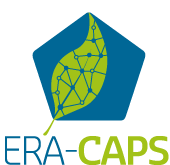Deciphering the genetic basis of field resistance to blast in European rice varieties to improve breeding for durable resistance
- Acronym GENBLAST
- Duration 1 October 2007 - 1 October 2010
- Project leader Ramón Carreres, IVIA, Spain
-
Other project participants
Didier Tharreau, CIRAD, France
Pere Arús, IRTA, Spain
José Maria Osca Lluch, UPV, Spain
Manuel Aguilar Portero, CIFA-IFAPA, Spain
Carlos Baixauli Soria*, Fundación RURALCAJA [Company], Spain
Luis Marqués Falcó, COPSEMAR [Company], Spain
-
Funding
National Institute for Agricultural Research (INRA), France
Ministry for Education and Science (MICINN), Spain
*participant with own funding
- Total Granted budget € 433,222
Abstract
Rice blast (caused by Magnaporthe grisea) is the most damaging fungal disease of rice (Oryza sativa L.), and it is the only pathogen of rice treated with pesticides in Europe, where most of the rice growing areas are river deltas and damps, with special environmental protection. The use of resistant rice varieties is a cost effective method to control the disease and can be incorporated as component of an integrated pest management (IPM) strategy, avoiding fungicide applications in such fragile areas. Determining the genetic and molecular basis of resistance in European varieties and including this knowledge in breeding programs is of primary importance to develop rice varieties durably resistant to blast. This project aims at using the appropriate genomic tools to identify the important genes for durable blast resistance and to start creating resistant varieties adapted for European growing conditions, through the combined efforts of different teams and using different methods: evaluation of resistance to blast in the field and in controlled conditions, study of expression patterns of genes involved in defense mechanisms, characterization of allelic variability, and QTL analysis.
